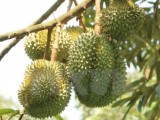So it aims to push forward the "Quality Leisure Destination” campaign under the "Thailand Plus One” policy and collaborate with neighboring countries in tourism programs, such as "Single Tourist Destination.”
"Thailand Plus One” is a government policy that aims to stimulate the country’s economy by using Thailand’s advantage points – being in the center of the ASEAN region and being the gateway to the ASEAN Economic Community market, which has 620 million consumers – to attract more investment from foreign investors.
Thailand has a modern transportation infrastructure network, and its exceptional geographic location makes it possible for visitors to travel through neighboring countries quickly and easily.
As a result, the collaboration with its neighbors will raise the region to a new level, as it becomes a single tourist destination for travelers from around the world.
2017 is set to be the year of ASEAN tourism under the campaign "Visit ASEAN at 50” to celebrate the 50th anniversary of ASEAN. It is expected to attract over 120 million tourists and bring in up to 29 trillion baht (or US$829 million) to the member countries.
There are preparations to complete various network links, such as the railway network connecting Kunming and Singapore, and the development of the ASEAN highway between Thailand, Myanmar, Cambodia, Laos, and Vietnam, which will bring benefits to all the countries.
The Government has also planned the tourism strategy 2015-2017, which is part of the 20-year national strategic plan "Thailand Moves Forward” to support the nation’s ability to attract more tourists and make Thailand a quality leisure destination.
Moreover, they will put into action the late King Bhumibol's philosophy "Explode from the inside,” which will enable communities to understand the advantages of participation in the project.
The tourism industry is one of the important factors driving Thailand’s economic growth during the last few years. In 2015, Thailand had a 16.7% economic growth rate, with an income of over 1.45 trillion baht (or US$41,000 million). In 2016, its economy grew a further 11%, and income reached over 2.52 trillion baht (or US$72,000 million).
Because tourism will continue to account for growth in many sectors that are connected to the tourism industry, it is a vital element in the nation’s economic picture.














